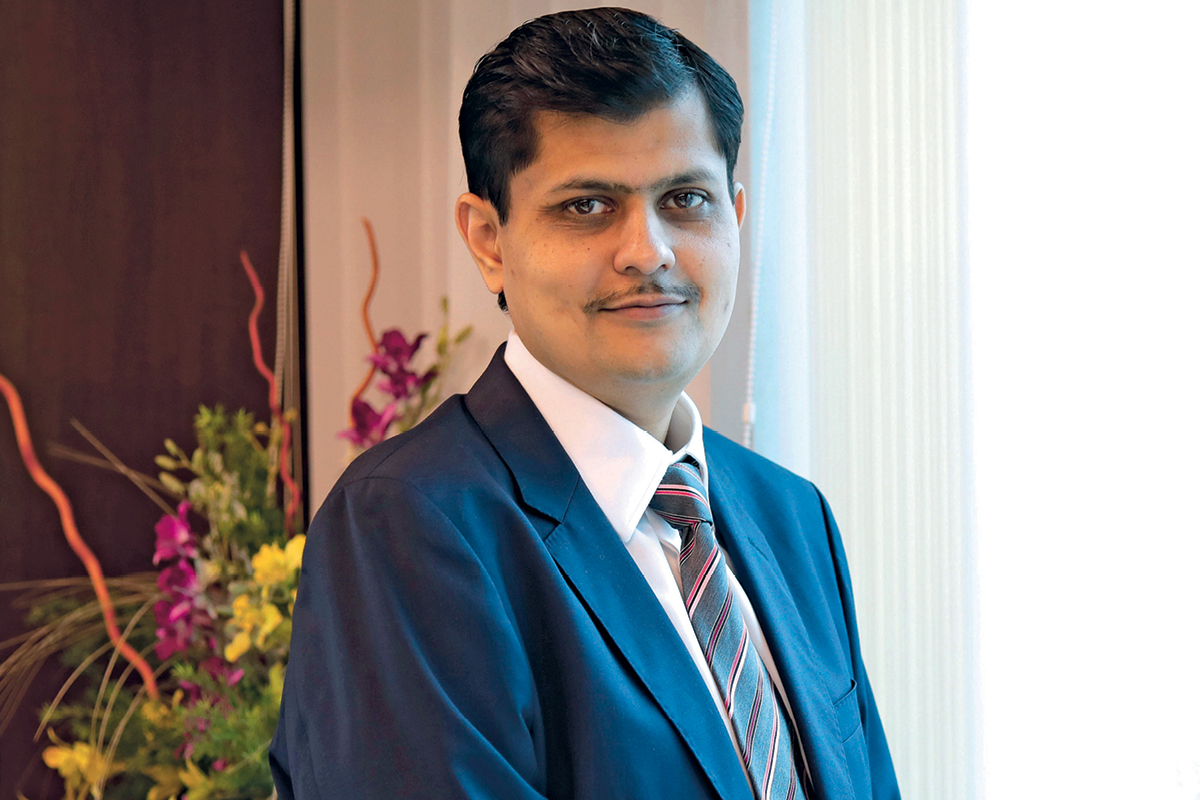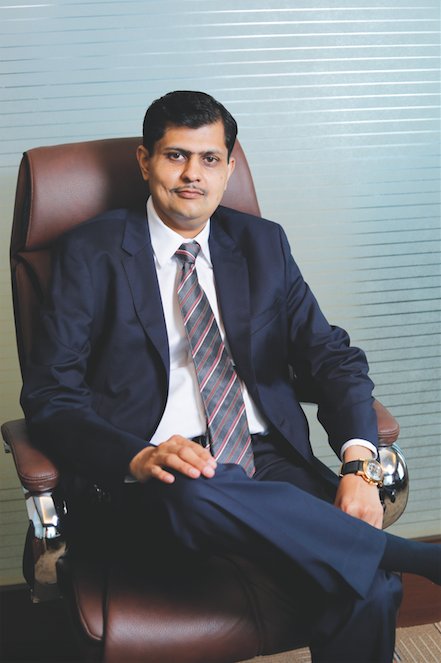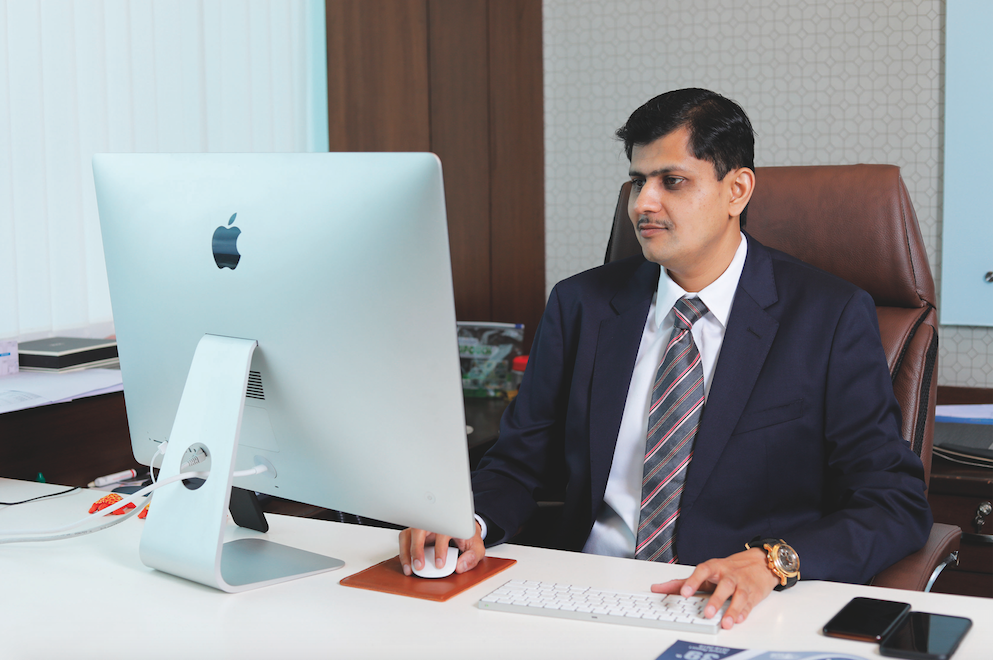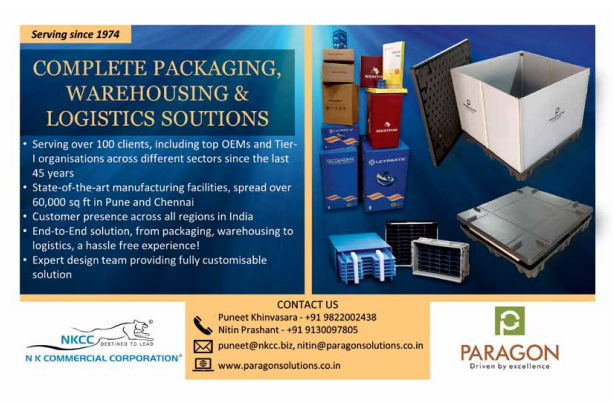Transforming the way in which a company goes about its business is quite a leap when its part of an industry that relies on precision engineering and specialised skills. But when Utkarsh Munot followed in his father’s footsteps and was appointed Executive Director in 2006, CEO in 2016, then Managing Director in 2019, he knew ZF Steering Gear (India ), also known as ZF India, needed to make drastic changes or face the inevitable loss of its market leadership.

Utkarsh realised the business had to take on a new wave of technology and find people who could integrate it into the company’s production and management processes. No easy task.
“ZF India has a very strong base along with some old employees who had taught me a lot of things and processes,” Utkarsh says.
“But with the change that I foresaw, I had to get rid of a lot of old handwritten processes and practices. We integrated our existing team with new industry experts and a few freshmen from college to combine processes in an innovative yet sustainable way. The change fortunately was welcomed and appreciated by the team that has been with us since my father had the reins of the company.”
With the combination of experience and new skills came a renaissance in technology as Utkarsh transitioned ZF India to a digital platform. It was a brave move in an industry, and a company, deeply reliant on traditional manual workplace practices.
“As India was moving towards digitalisation, we were among the first few in our auto component sector to have started the process of converting to a digital future,” he says.
“All the machinery parameters, data collection and quality checks were automatically updated from manually writing them all down, saving time and adding traceability for the customers to ascertain quality.”

Next on Utkarsh’s agenda was a shift in corporate culture. He established a central group to examine the company’s strategic vision, and they proposed six core values to build on.
“We had to have a vision for everyone to align to, with the same language externally and internally,” he explains.
“So the topmost priority for us is customer focus – considering customers’ needs and requirements.”
The second is integrity. The company has never penalised or cut payments to employees. Third is teamwork, with older workers accustomed to old technology and processes fitting in with young workers used to new technology.
“The fourth is transparency, and the fifth is innovation, thinking creatively and challenging our own status quo,” Utkarsh says.
“If we do so we are able to challenge our products and offer unique features to customers without raising prices. The last, and most important, is leadership. We are creating a succession planning platform, not only for senior people but also for juniors.”
Underpinning the transformation of the company was a new sense of purpose, encouraging every employee to accept change and to take on challenges as opportunities. “It’s easy to play the blame game. People come up with problems but no solutions. It’s possible to change that,” Utkarsh says.
“We’ve been able to overcome all these minor issues. We found growth in troubled waters, and thus during the economic slowdown we are looking at investment opportunities and offshoot projects, and further enhancing ZF India’s production capacity, as well as improving processes and systems to cater to new customer requirements with additional product features.
“Currently in the Pune facility we have capacity for 1,200 units each day, or 360,000 for the year, which can be scaled up to 1,500 a day, or 450,000 for the year. With the government’s proposed 10- or 15-year ban in its vehicle scrappage policy and BS6 platform in place, we see good growth going forward.
We have built a second plant in Pithampur, on the outskirts of Indore, in Madhya Pradesh, with a capacity of 1,000 units or 300,000 for the year in the first phase, and 1,200 units, which is 360,000 for the year, in the second phase. So even while we’re producing 1,000 units a day, that’s 300,000 steering systems from the Pithampur plant a year.
Combining Pune and Pithampur in the expansion plan, I’m talking 660,000–810,000 power steering systems per year. ZF India has always had sound and healthy finances. We’ve been debt-free since my father led the company.
“We have developed a system called Truck in a Box and Bus in a Box – supplying an entire system as a single source, coordinated with the OEM, under a unique scheme for us called Supply and Apply. We will manufacture the parts in our plant, they will be shipped to the customer and our people will fit our steering gear on the customer’s chassis with all the integrations. So the customer gets trained workers from our plant who are able to troubleshoot issues on their line, and we are able to give them an end-to-end solution. If we do this the customer also saves on manpower, about 10–15 people per shift, which is huge.”

It’s an example of streamlined supply side logistics, built on intimate trust between ZF India and its supply partners. Utkarsh is confident it will have a big impact for all parties. “Our suppliers are an integral part of our organisation and our livelihood.
We do not consider them as suppliers but as ZF India family members. Suppliers are close to my heart because they are actually a part of our mutual growth. We cannot grow or develop anything without their support.
Most of our suppliers have been associated with us for about 30 years now. We engage them at the design stage, so they are completely aligned with our objectives, and encourage them to work in our factory, on our machines, so they can gain experience and knowledge from our people.
The trust I have been able to build with them plays a big part in my role. “I have been successful in making ZF India instrumental in incorporating steering gear systems with new technologies and other products that were recently made available by us at affordable prices.
Today, ZF India proudly stands among the leading companies of the world, which has successfully established itself to supply power and mechanical steering systems and aggregates from a half-tonne vehicle to a 50-tonne vehicle.
“Since I was a child I have always been in awe of my father and we have always shared an excellent bond. With his hand-holding and leadership across the industry, I have been able to successfully overcome the most trying situations, which makes me extremely ambitious and drives me to do more.”
Proudly supported by:



